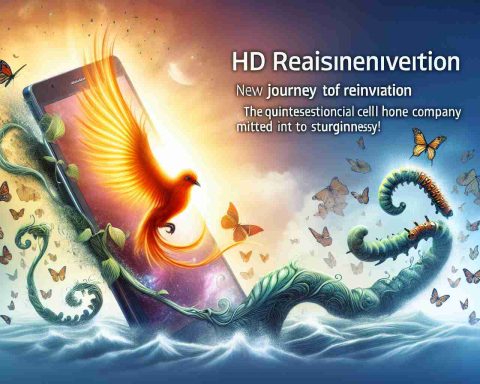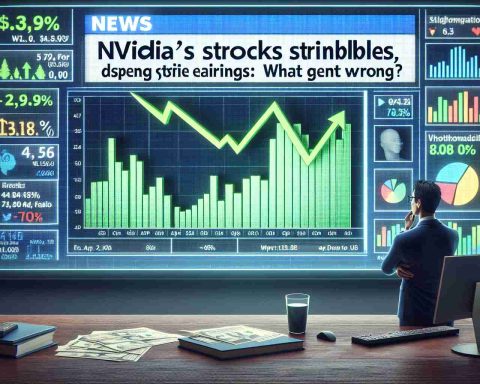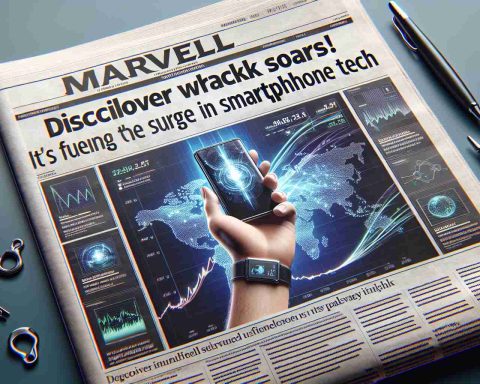In a strategic move to bolster its presence in the tech market, Nokia Corporation has unveiled a significant share buyback program. This initiative aims to counterbalance the effects of its latest acquisition of Infinera Corporation. In an effort to stabilize its share value, Nokia plans to reacquire up to 150 million shares, potentially investing up to €900 million.
The Purpose Behind the Buyback
The primary goal of this buyback is to mitigate the dilution caused by issuing new shares to Infinera shareholders, as well as to address Infinera’s share-based incentives. Starting from November 25, 2024, and wrapping up by December 31, 2025, Nokia intends to cancel the repurchased shares, reducing its overall capital and aligning the share distribution.
Funding and Authorization
This ambitious buyback will be financed through Nokia’s reserve for invested unrestricted equity, which will also consequently decrease the company’s total unrestricted equity. The initiative received the green light from Nokia’s Board of Directors following approval at their Annual General Meeting on April 3, 2024. The buyback encompasses about 3% of Nokia’s total shares.
Execution and Regulations
The share repurchase will be carried out on Nasdaq Helsinki and selected trading facilities, with transactions excluded from the United States market. A third-party broker, operating independently, will manage the purchases, complying with EU Market Abuse Regulation’s “safe harbour” protocols.
Nokia remains a global frontrunner in B2B technology, focusing on innovative network solutions. For additional details, refer to our terms and conditions.
How Nokia’s Strategic Moves Are Shaping the Tech Landscape
The Ripple Effects of Nokia’s Buyback Strategy
In the high-stakes realm of technology and investments, Nokia’s recent announcement of its substantial share buyback program has set the stage for a series of implications that extend beyond simple market maneuvers. Notably, the company’s strategic steps have broader ramifications for the industry, communities, and global markets.
While the primary focus of Nokia’s current initiative is on stabilizing share value following the acquisition of Infinera Corporation, an interesting facet arises: the potential impacts on technological innovation and market competition. As Nokia attempts to mitigate shareholder dilution, the action reflects a growing trend where companies perform buybacks to maintain market presence, reduce capital, and possibly signal investor confidence in their strategic direction.
Impact on Innovation and the Tech Community
Nokia’s acquisition of Infinera, a major player in optical networking systems, could lead to enhanced technological solutions. This merger presents new opportunities for innovation, potentially transforming network infrastructure by integrating Nokia’s advanced 5G and network expertise with Infinera’s optical transport capabilities.
For the tech community, this could mean faster, more reliable network services, paving the way for smarter cities and more interconnected communities. However, this consolidation trend might also raise alarms over decreasing competition in the market, which could stifle smaller companies and startups trying to innovate in similar spaces.
Advantages and Challenges Ahead
One of the standout advantages of Nokia’s buyback and its strategic partnership with Infinera is the prospect of improved network performance and customer service. The combined forces of two tech giants, focusing on B2B solutions, can push the envelope in delivering state-of-the-art network technologies.
Conversely, a challenge that arises is the potential for job redundancies following such mergers and acquisitions. As Nokia aligns and integrates its operations with Infinera’s, there might be overlaps in roles leading to workforce reductions, impacting communities dependent on these employment opportunities.
Moreover, while buybacks can be a tool to enhance shareholder value, they might also suggest that the company has no better investment opportunities at hand. This raises questions about long-term growth prospects and whether such funds could be better spent on research and development.
Related Questions and Future Prospects
An important question surfaces: How will these strategic efforts influence Nokia’s standing in the intensely competitive tech world, especially with giants like Huawei and Ericsson? Moreover, can Nokia and Infinera lead the next wave of technological breakthroughs, or will they simply maintain the status quo?
As we observe these developments, it’s crucial to consider whether Nokia’s actions today will serve as a blueprint for future tech mergers, setting new standards for strategic buybacks and corporate partnerships.
For more insights on this unfolding narrative, explore the broader implications at Nokia and related tech innovations.



























